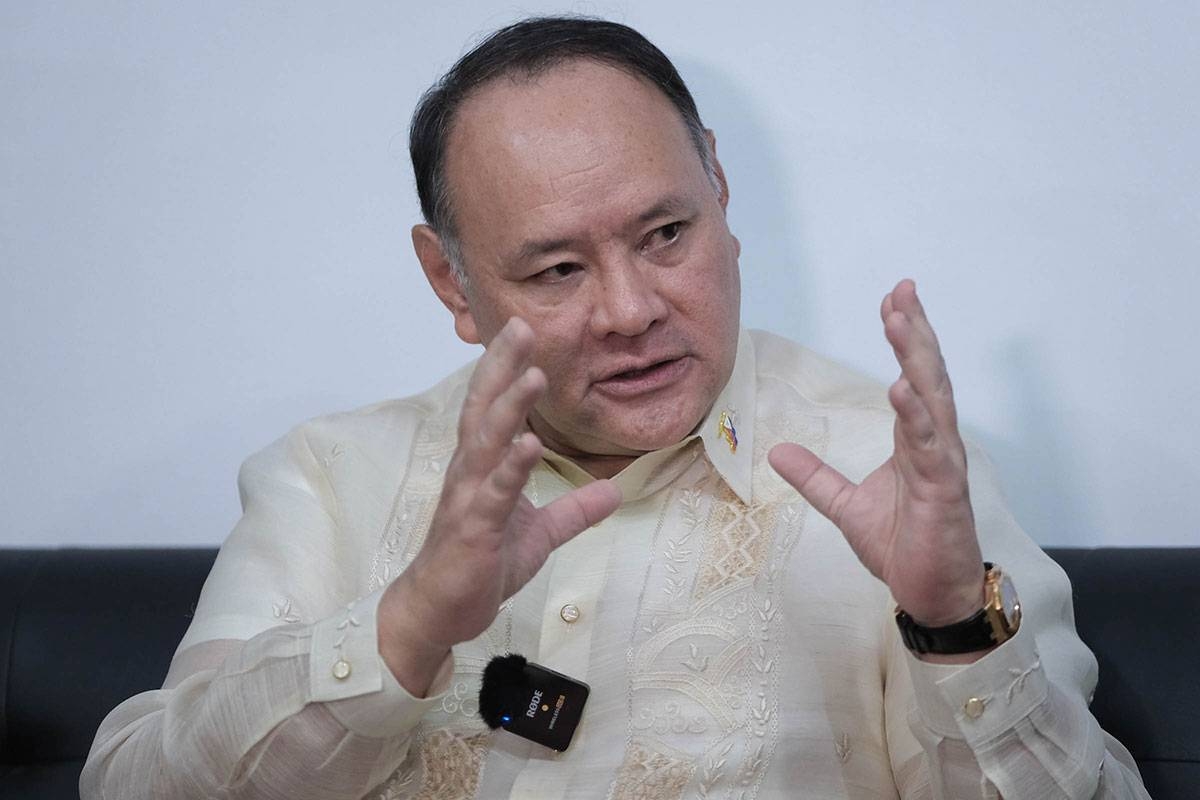China’s Alleged Deception in the Ayungin Shoal Dispute
In recent news, it has been claimed that China deceived the international community when it announced that it had reached an internal agreement with the Philippine government regarding the Ayungin Shoal dispute. Defense Secretary Gilberto Teodoro Jr. expressed his frustration with the Chinese embassy’s pronouncements, stating that there was no discussion or briefing on any “gentlemen’s agreement” or “new model” during a courtesy call with Chinese Ambassador Huang Xilian in July 2023.
Teodoro emphasized that he had disallowed any contact between the defense department and the Chinese embassy since the courtesy call. He issued a statement to raise awareness of China’s attempt to spread falsehoods and divert attention from their unlawful presence and actions in the exclusive economic zone of the Philippines. Teodoro advised Filipinos, the media, and the international community to be cautious of China’s manipulation, interference, and malign influence in furthering its own interests.
Rebuttal from Chinese Embassy
The Chinese embassy, however, maintained that the “new model” had been approved by all key officials in the Philippine chain of command, including Teodoro and National Security Adviser Eduardo Año. They referred to readouts of the meeting between Teodoro and Huang at Camp Aguinaldo in Quezon City on July 15, 2023, which were released by the Department of National Defense (DND) and the Chinese embassy in the Philippines.
The embassy spokesperson stated that these were facts and not narratives or inventions. They asserted that China has always been committed to managing the situation at Ayungin Shoal, known as Ren’ai Jiao in Chinese, and maintaining responsible dialogue and communication with the Philippines. The spokesperson expressed regret that peace and tranquility were repeatedly disrupted at Ren’ai Jiao despite the internal understandings and arrangements.
However, questions were raised regarding the Philippines’ denial and resistance to these understandings and arrangements. The embassy spokesperson questioned why the DND refused to manage maritime differences through dialogue and negotiation. They highlighted that the “gentlemen’s agreement” was reached during the previous Philippine administration of former President Rodrigo Duterte, while the “new model” was reached during the current administration of President Ferdinand Marcos Jr.
The spokesperson further questioned why the Philippines abandoned a model that had proven effective in managing differences and avoiding conflicts after it worked only once. They insinuated that certain forces may have influenced the decision to abandon the “new model” because managing differences and avoiding conflicts could go against their interests.
Analysis and Commentary
Examining this dispute between China and the Philippines requires careful consideration of the statements made by both parties. It is essential to contextualize the situation and understand the motivations behind their claims.
The Philippines, through Defense Secretary Teodoro, has expressed frustration with China’s assertions regarding the existence of a “gentlemen’s agreement” or a “new model” for resolving the Ayungin Shoal dispute. Teodoro’s denial of any such agreement raises doubts about China’s credibility and their intentions in the region.
On the other hand, the Chinese embassy maintains that the agreement was approved by key officials in the Philippine chain of command. They argue that the readouts of the meeting between Teodoro and Huang serve as evidence of the agreement’s existence. However, it is important to note that the release of these readouts by the DND and the Chinese embassy does not necessarily prove the validity of the agreement itself.
Both parties present their own narratives, and it is crucial to critically analyze their claims. The Chinese embassy’s emphasis on managing the situation at Ayungin Shoal and maintaining responsible dialogue may be an attempt to portray themselves as a reasonable actor in the dispute. However, the repeated disruptions to peace and tranquility at Ren’ai Jiao raise questions about the effectiveness of their approach.
Defense Secretary Teodoro’s call for awareness and caution regarding China’s methods of manipulation and malign influence highlights the need for transparency and accountability in international relations. It is essential for Filipinos, the media, and the international community to critically evaluate the information presented and not blindly accept any party’s claims.
Furthermore, the Chinese embassy’s insinuation that certain forces influenced the Philippines’ decision to abandon the “new model” raises concerns about potential hidden agendas. It is important to consider the political dynamics and interests at play in the region and how they may shape the narratives presented by each side.
In conclusion, the dispute between China and the Philippines over the Ayungin Shoal requires careful analysis and critical evaluation of the claims made by both parties. Defense Secretary Teodoro’s denial of any agreement, coupled with the Chinese embassy’s insistence on its existence, highlights the need for transparency and accountability in international relations. As the international audience, it is crucial to stay informed, question narratives, and seek a comprehensive understanding of the situation based on verifiable facts and evidence.
Source: The Manila Times








